First-World Problems
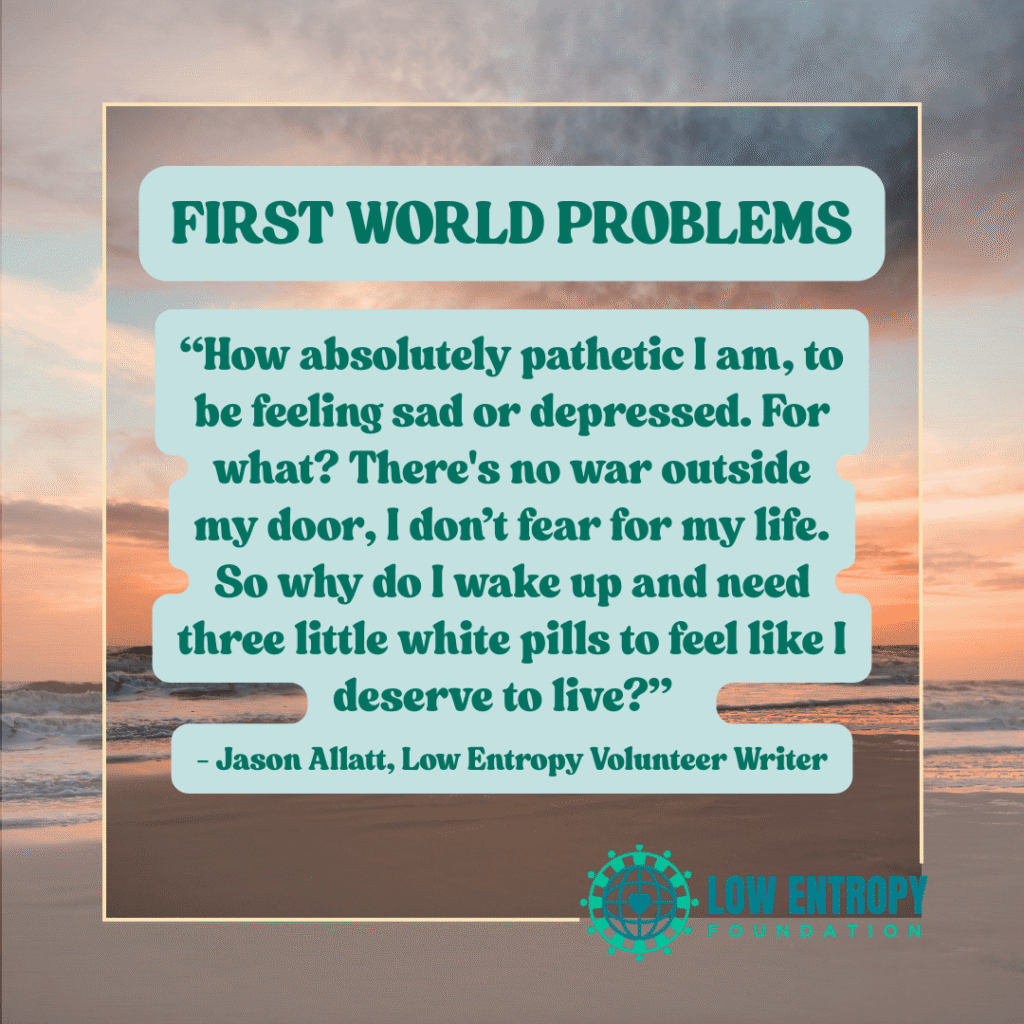
Jason Allatt, Low Entropy Volunteer Writer There’s a funny catch-22 with the idea of “first-world problems.” As someone who has only ever lived in the First World, to me, they’re just problems. To clarify, I don’t mean the line at Starbucks, I don’t mean Chick-fil-A is out of sandwiches. When I think of a “first-world […]
Lights in the Dark
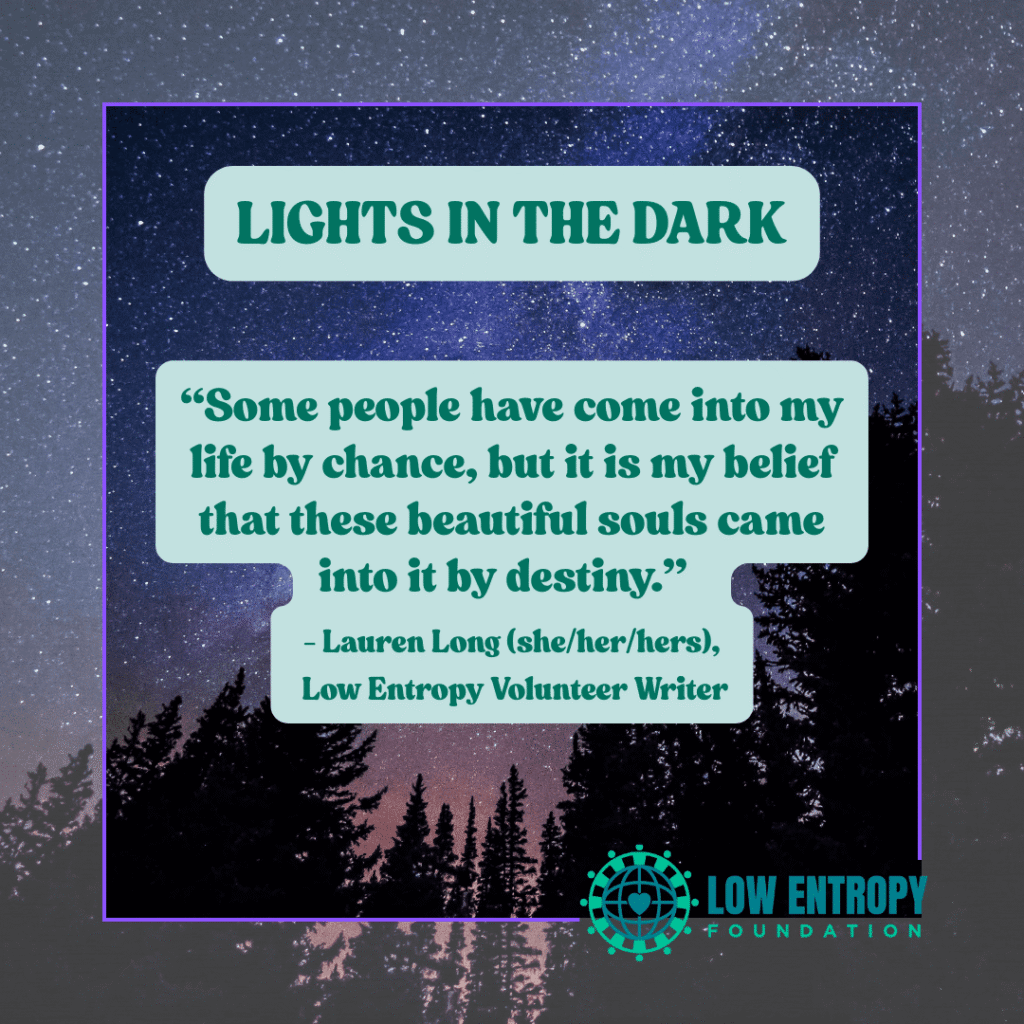
Lauren Long (she/her/hers), Low Entropy Volunteer Writer The musical duo Sugarland was a regular presence in our household while I was growing up. My younger sister religiously played their music, but despite her best attempts to convert me, I never turned into a Sugarland fan. Don’t get me wrong, I like their music, but just […]
My Miraculous One
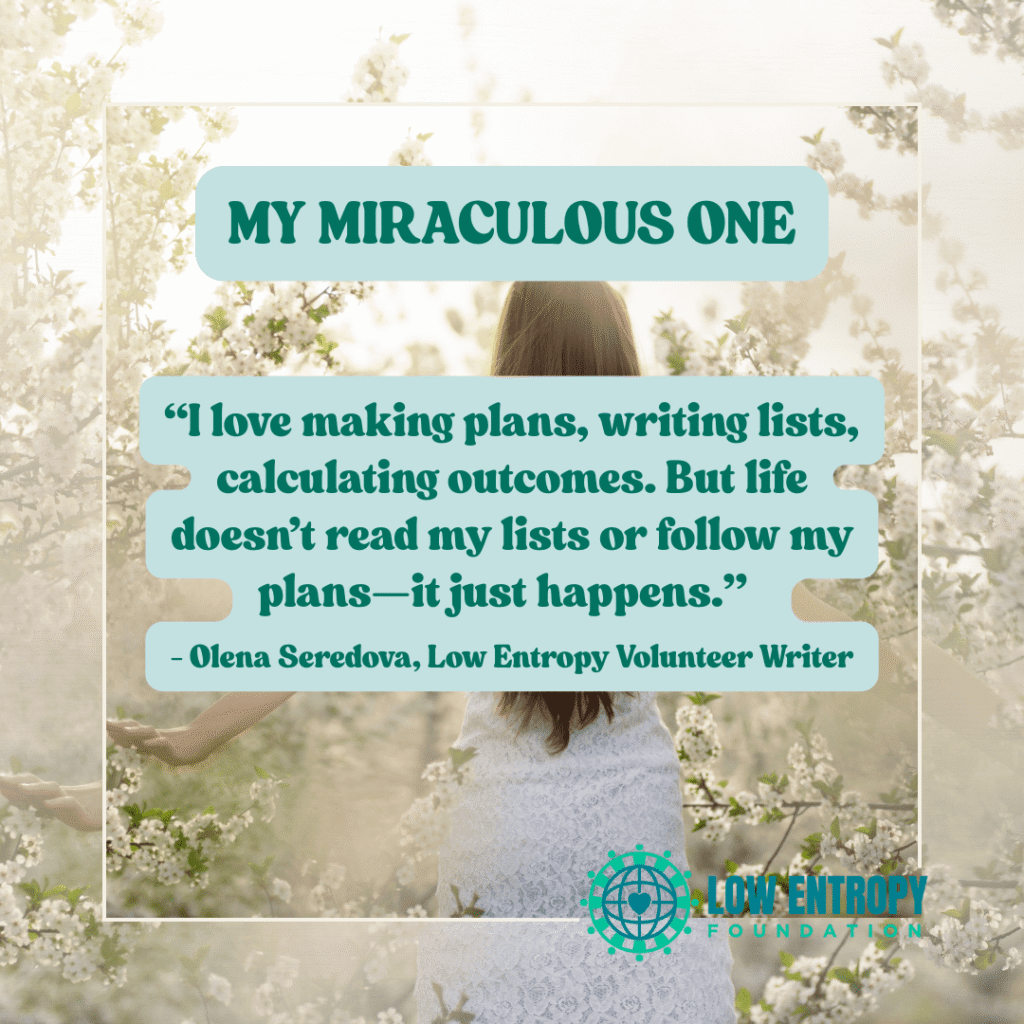
Olena Seredova, Low Entropy Volunteer Writer I had put off writing this letter for a long time. It didn’t feel urgent—I thought I had plenty of time. Then I sat down to work on this article and finally wrote a letter to the one who has been with me my whole life. “My dear, my […]
The Spaces Between My Expectations
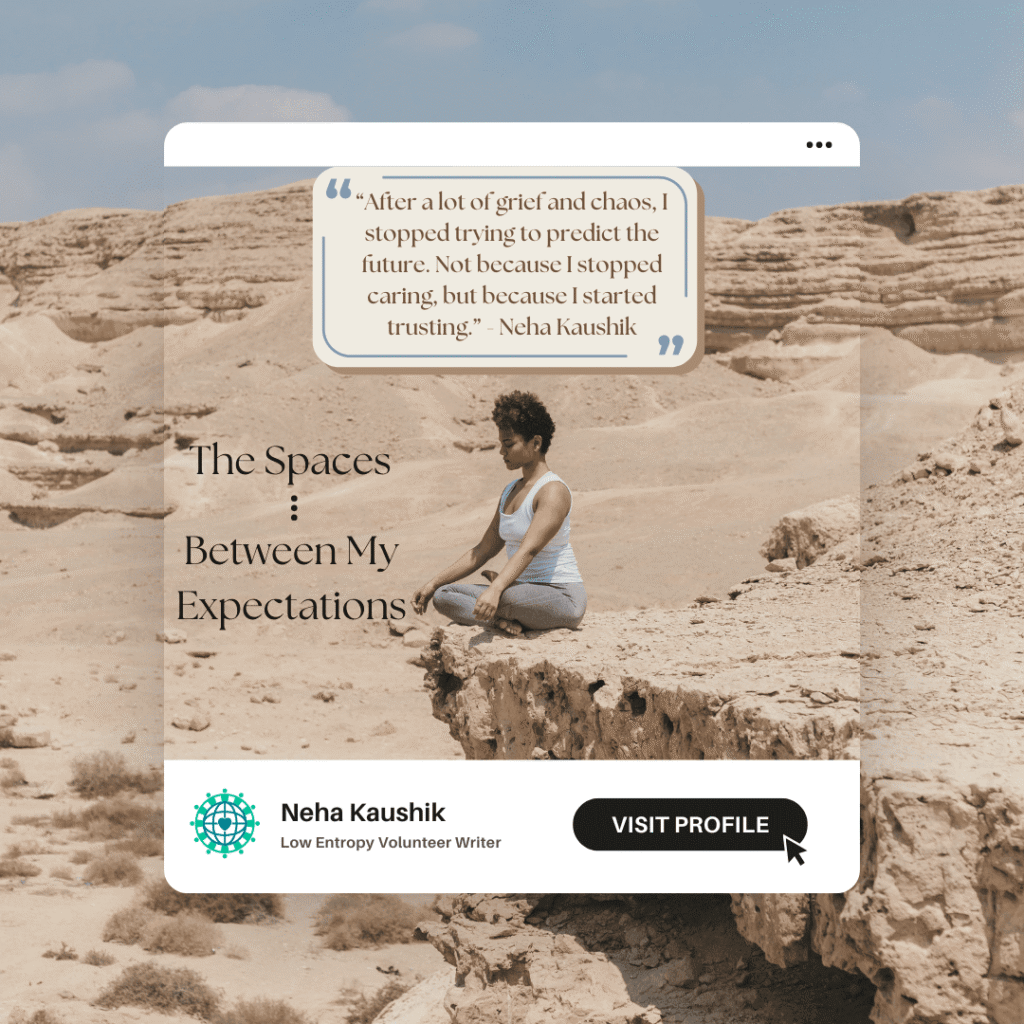
Neha Kaushik, Low Entropy Volunteer Writer There was a time when I believed in the illusion of control, in the comforting notion that the future could be neatly mapped out. I had career milestones to reach by 30, relationships that would stand the test of time, a version of myself I believed in with such […]
Without Fear or Hope
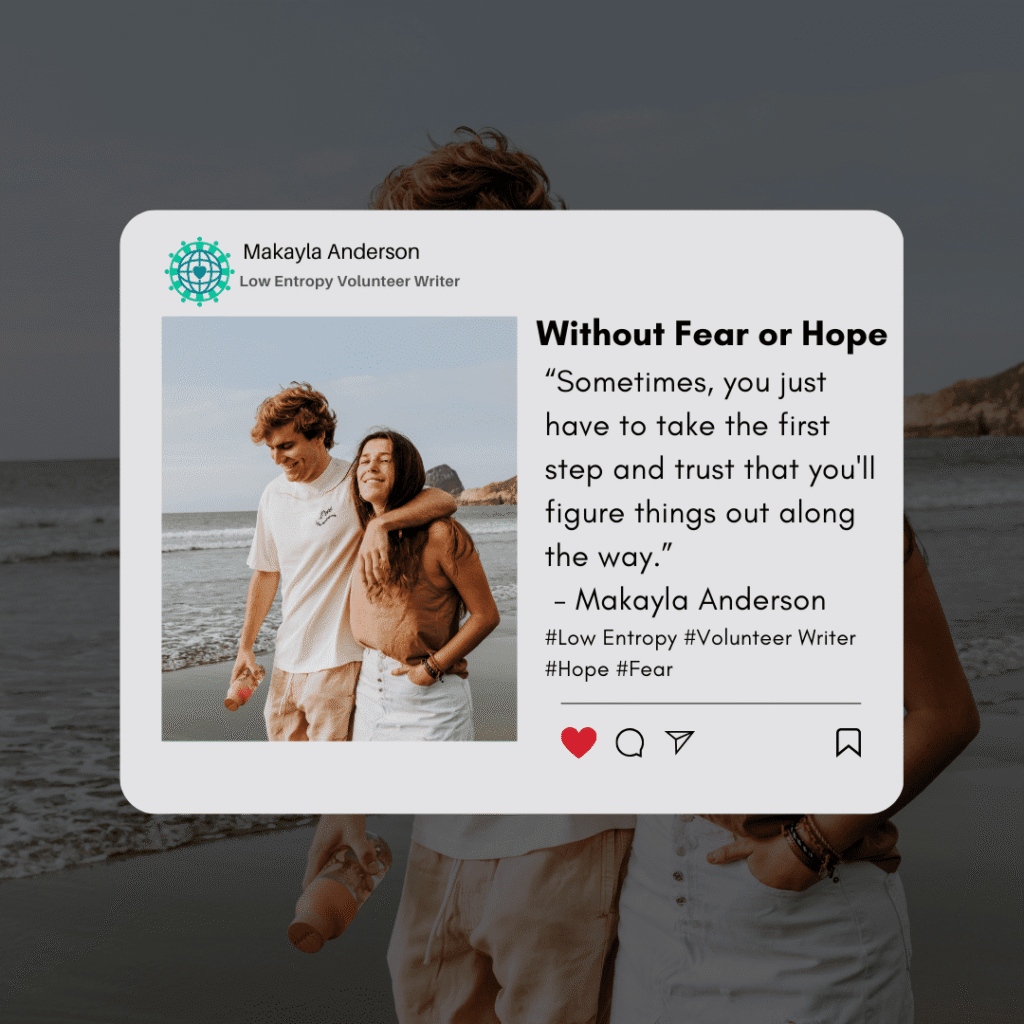
Makayla Anderson, Low Entropy Volunteer Writer When it comes to making decisions, especially big ones, most people spend a lot of time weighing the risks and rewards. They analyze every potential outcome, try to calculate the odds, and often hesitate, caught between the fear of failure and the hope of success. But for me? I […]
Making My Own Luck
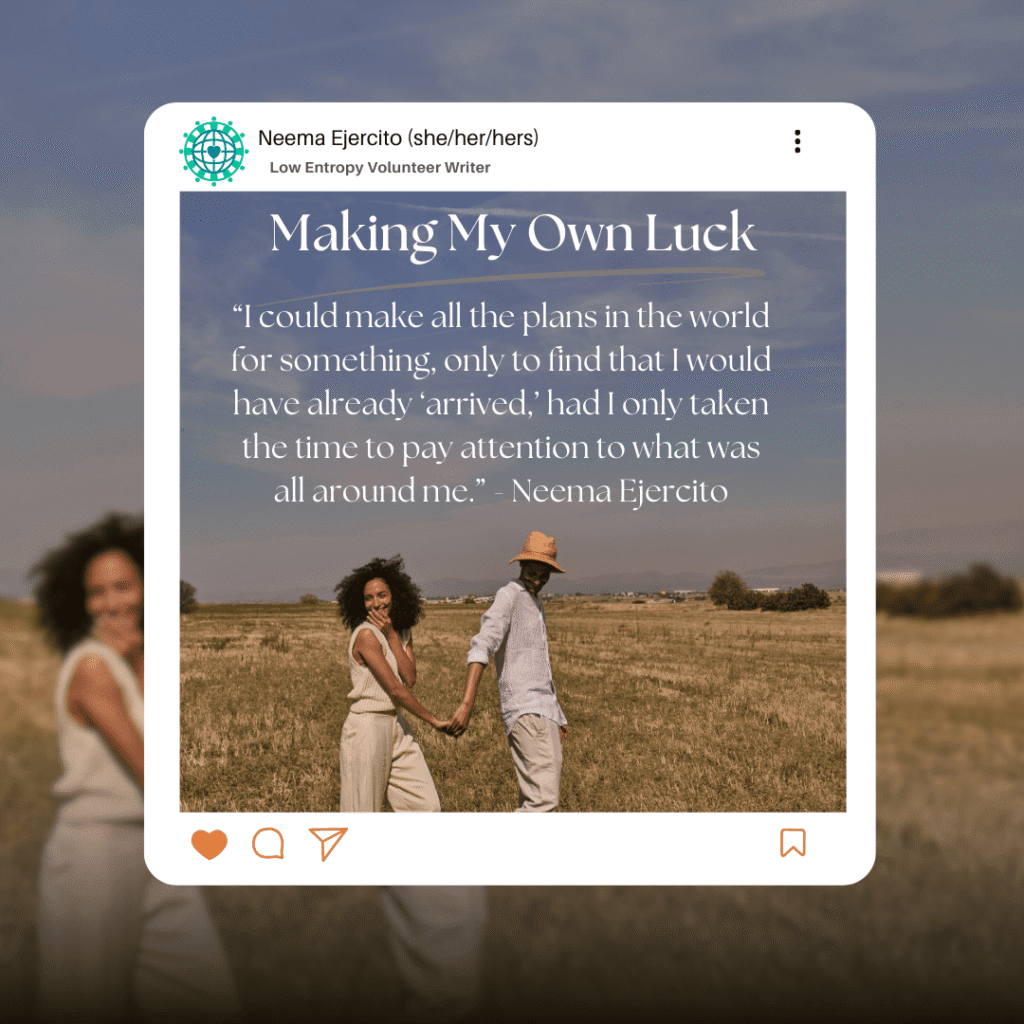
Neema Ejercito (she/her/hers), Low Entropy Volunteer Writer I have a dream. On my fifth round of working through Julia Cameron’s The Artist’s Way, I declared that I wanted to perform on stage (dancing, maybe?) with my multimedia artwork all around me and people freely watching me and walking around my works, experiencing my dance and […]
Lucky to be Alive
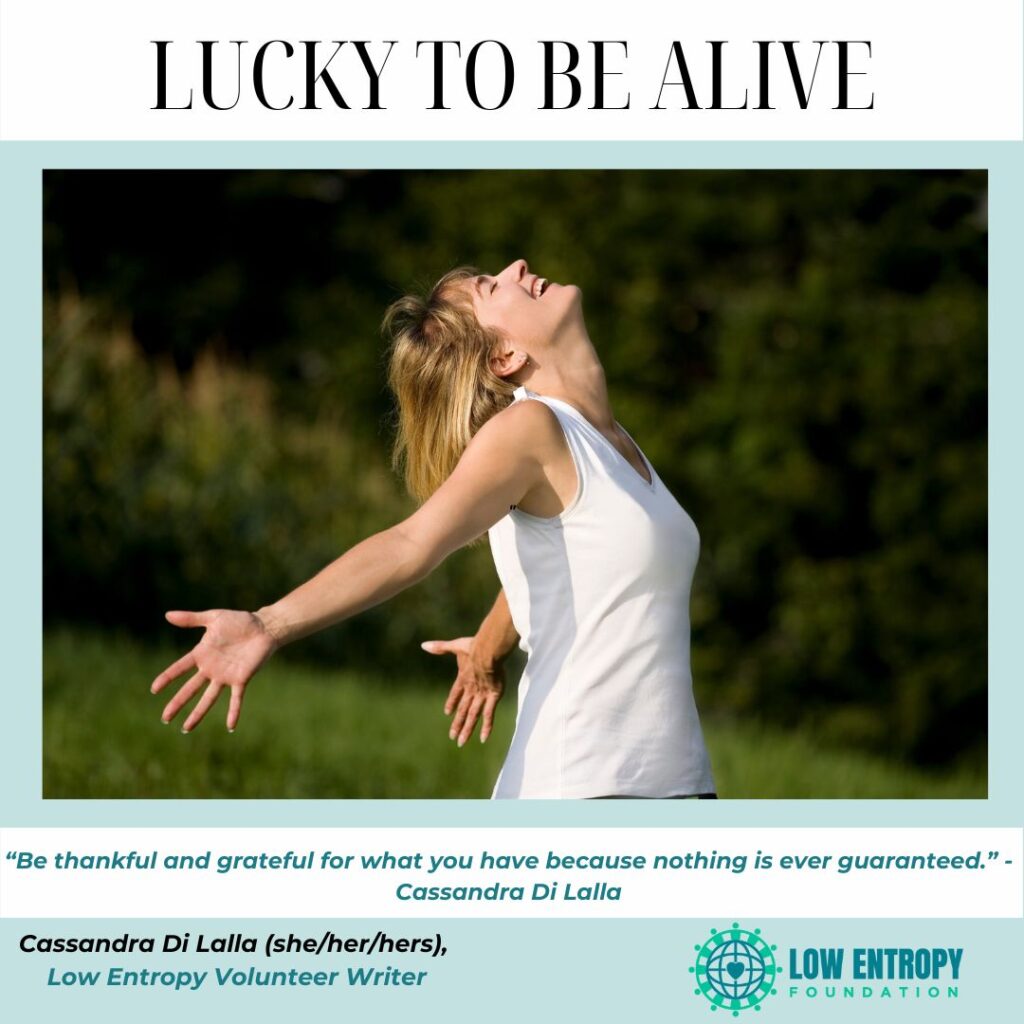
Cassandra Di Lalla (she/her/hers), Low Entropy Volunteer Writer I’m choosing to write about this because I’ve escaped death numerous times throughout my life. I struggle immensely with my mental health, but I’ve come to accept that about myself. I’ve tried nearly everything under the sun, yet I’m still left with so many unanswered questions. I’ve […]
Your Grass Is Green Enough
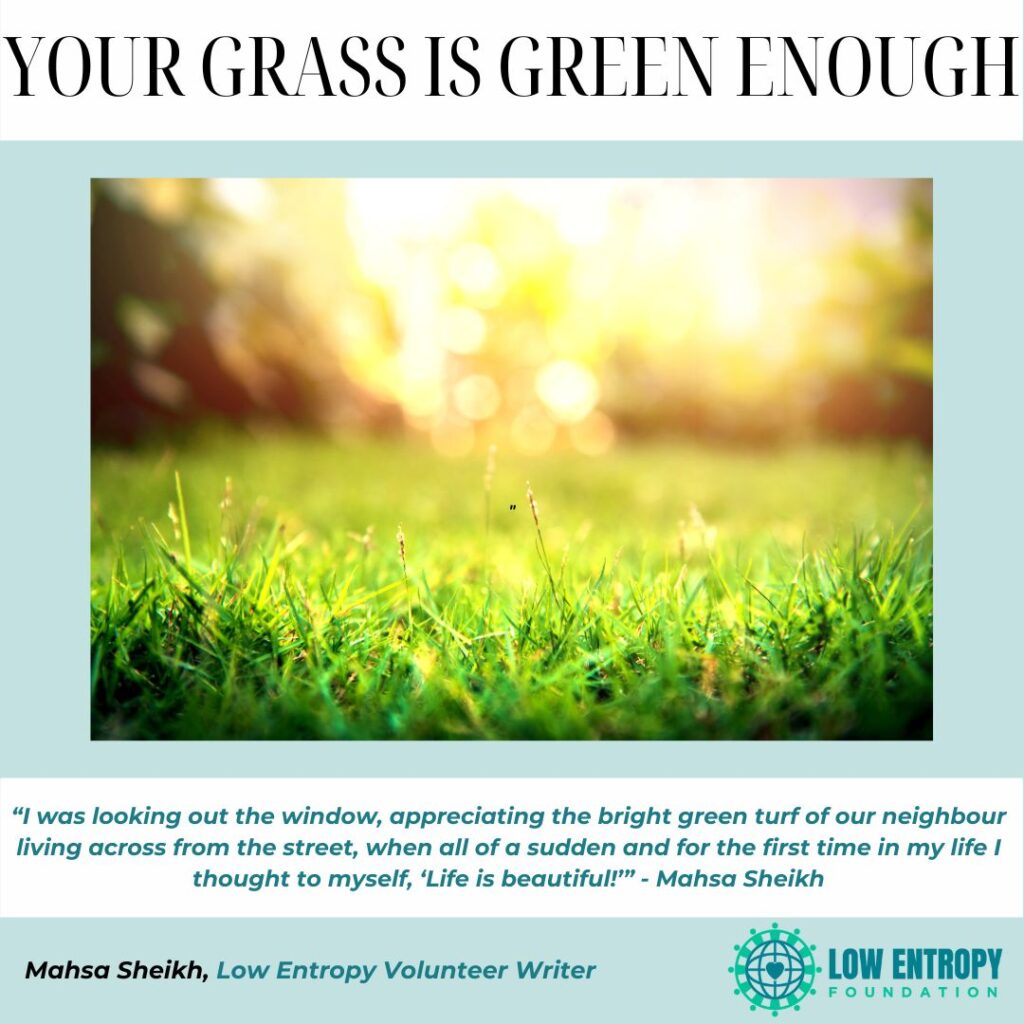
Mahsa Sheikh, Low Entropy Volunteer Writer Humans can be, to varying degrees, self-interested and prone to moving in calculated ways—especially at times when resources are scarce, or when we are simply faced with fewer options than usual. We might often find it difficult to easily ignore others advancing their careers or lives and not question […]
The Beauty of Now
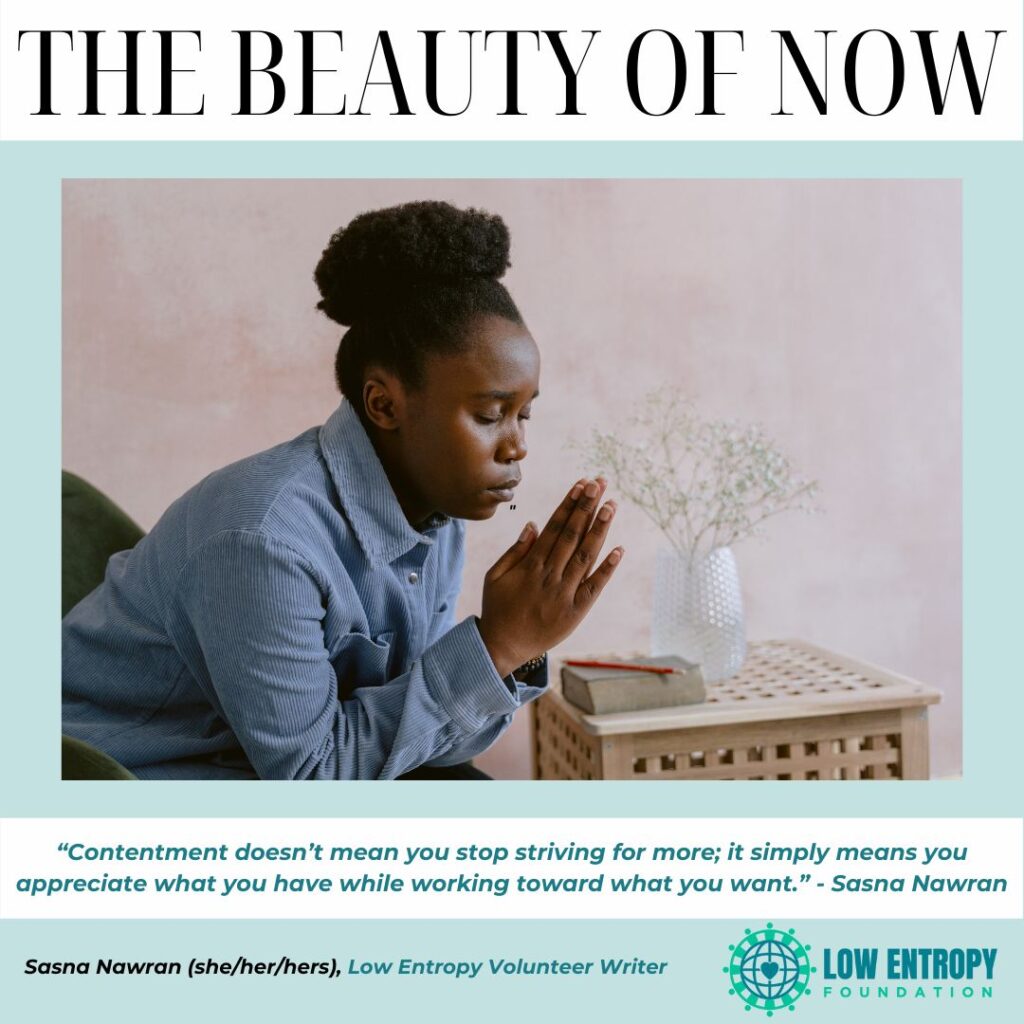
Sasna Nawran (she/her/hers), Low Entropy Volunteer Writer In a world that moves at lightning speed, it’s easy to focus on what’s missing, rather than what’s present. You scroll through social media and see people with lavish vacations, new cars or seemingly perfect lives. In comparison, your own life may feel ordinary or lacking. But here’s […]
Accepting Fate
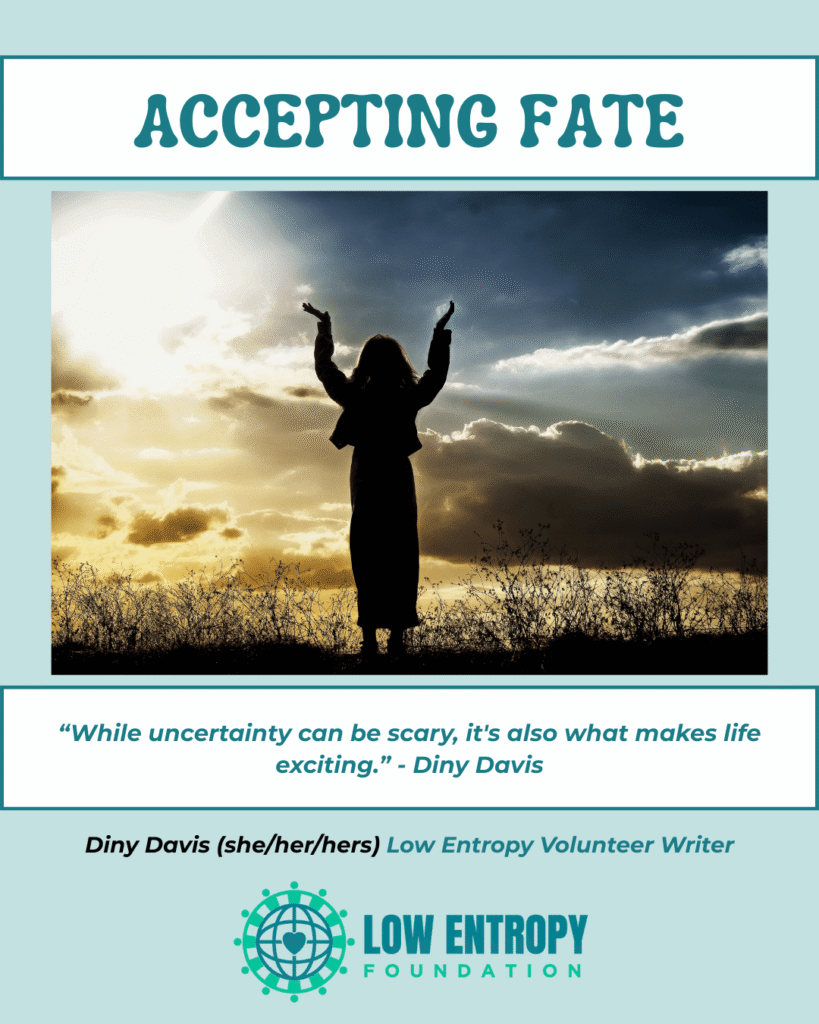
Diny Davis (she/her/hers), Low Entropy Volunteer Writer “Luck is believing you’re lucky” – Tennessee Williams Have you ever wondered about the role of luck in your life? It’s a funny thing, isn’t it? Sometimes it feels like everything’s going our way, and other times, well, not so much. This article explores the nature of luck […]
